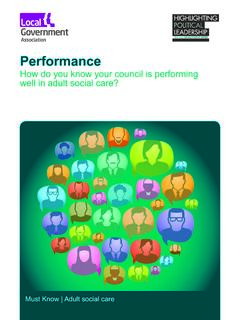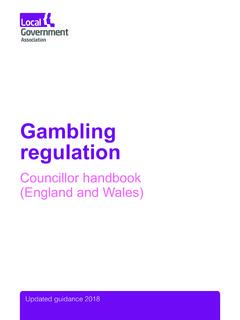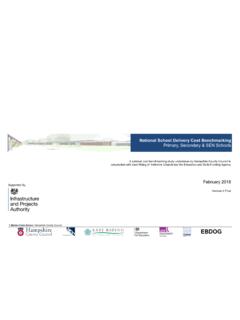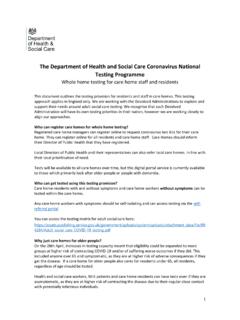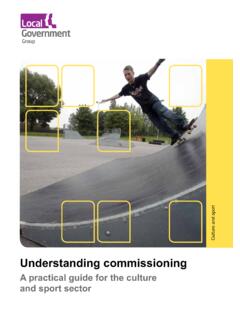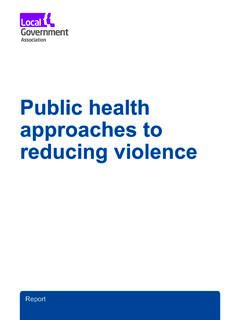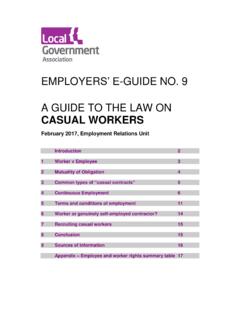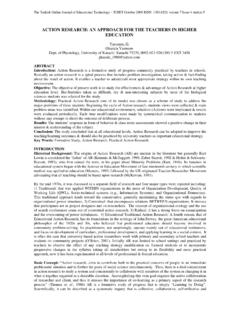Transcription of Foreword Rules: The Gunning Principles
1 ContentsIntroductionContextForewordSecti on 1: The BasicsSection : Trust and democracySection : Trust in the communitySection : Trust in the systemWhich hat are you wearing?New Conversations LGA guide to engagementFebruary 2019 Compiled by the Local Government Association and The Campaign Company, with help from The Consultation Institute Rules: The Gunning PrinciplesThey were coined by Stephen Sedley QC in a court case in 1985 relating to a school closure consultation (R v London Borough of Brent ex parte Gunning ). Prior to this, very little consideration had been given to the laws of consultation. Sedley defined that a consultation is only legitimate when these four Principles are met:1. proposals are still at a formative stage A final decision has not yet been made, or predetermined, by the decision makers2. there is sufficient information to give intelligent consideration The information provided must relate to the consultation and must be available, accessible, and easily interpretable for consultees to provide an informed response3.
2 There is adequate time for consideration and response There must be sufficient opportunity for consultees to participate in the consultation. There is no set timeframe for consultation,1 despite the widely accepted twelve-week consultation period, as the length of time given for consultee to respond can vary depending on the subject and extent of impact of the consultation4. conscientious consideration must be given to the consultation responses before a decision is made Decision-makers should be able to provide evidence that they took consultation responses into accountThese Principles were reinforced in 2001 in the Coughlan Case (R v North and East Devon Health Authority ex parte Coughlan2), which involved a health authority closure and confirmed that they applied to all consultations, and then in a Supreme Court case in 2014 (R ex parte Moseley v LB Haringey3), which endorsed the legal standing of the four Principles .
3 Since then, the Gunning Principles have formed a strong legal foundation from which the legitimacy of public consultations is assessed, and are frequently referred to as a legal basis for judicial review In some local authorities, their local voluntary Compact agreement with the third sector may specify the length of time they are required to consult for. However, in many cases, the Compact is either inactive or has been cancelled so the consultation timeframe is open to debate2 BAILII, England and Wales Court of Appeal (Civil Decision) Decisions, Accessed: 13 December BAILII, United Kingdom Supreme Court, Accessed: 13 December 20164 The information used to produce this document has been taken from the Law of Consultation training course provided by The Consultation Institut
